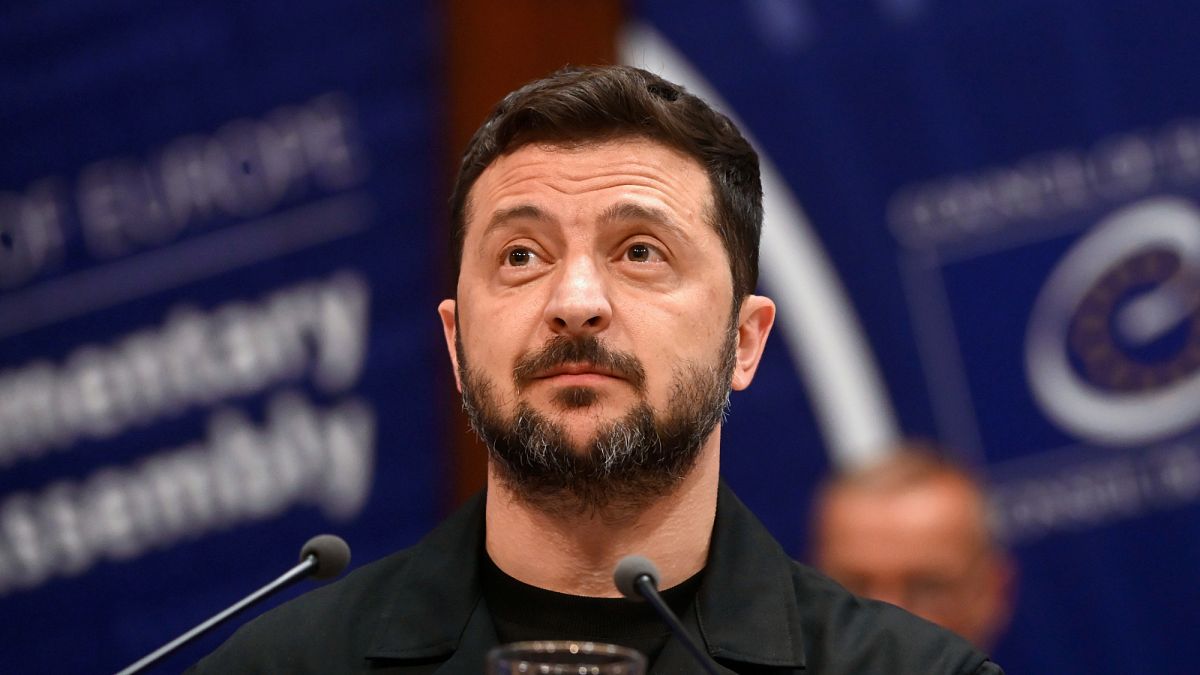

In a display of determination and resilience, Ukraine continues to push forward on its path toward European Union (EU) membership, despite facing opposition. Emphasizing this commitment, President Volodymyr Zelenskyy has vowed that Ukraine will do “anything” necessary to advance discussions regarding its accession. This statement comes against the backdrop of Hungary’s ongoing veto, which poses a hurdle in the process. However, Ukraine’s resolve is unwavering, fueled by the support of its European allies, most notably Denmark.
Denmark has pledged to apply “maximum pressure” on Hungary to lift its veto, underscoring the importance of enlargement for maintaining stability and inclusion within the European bloc. Danish Prime Minister Mette Frederiksen, highlighting her country’s unwavering support, remarked on the broader geopolitical stakes involved. Marie Bjerre, Denmark’s Minister for European Affairs, echoed this sentiment, warning of the potential risks of not advancing with the enlargement process. Bjerre’s statement reflects a deep understanding of the need for cohesion within Europe to ensure that countries like Ukraine are not left isolated.
The European Union finds itself at a critical juncture, where the decisions made could shape the political landscape of Europe for years to come. Meanwhile, Moldova is also actively seeking EU membership, with its leaders keen on strengthening economic ties and ensuring national security. An important summit is set to take place in Chisinau, where Moldovan President Maia Sandu will meet with European Commission President Ursula von der Leyen and António Costa, President of the EU Council. These discussions are expected to further Moldova’s aspirations of integration into the EU, although Brussels remains hesitant to treat Moldova’s application separately from Ukraine’s. This interconnectedness in their accession efforts highlights a shared regional ambition for greater integration.
While Ukraine and Moldova maneuver through the intricacies of EU accession, another noteworthy event in European politics unfolds. Austria has initiated the deportation of a Syrian national, setting a precedent as the first EU country to do so following the fall of Bashar al-Assad’s regime. This development, involving a man who was granted asylum in Austria in 2014, marks a significant shift in the region’s approach to asylum and deportation policies. The broader implications of such acts may influence future policies across European nations as they navigate the complexities of humanitarian protection and legal pathways for asylum seekers.
In this evolving landscape, the strong aspirations of Ukraine and Moldova to join the EU are being met with both support and challenges. As these countries diligently work toward their goal, the support from EU members like Denmark serves as a reminder of the fundamental spirit of unity and collaboration that the European Union embodies. The solidarity shown amidst the intricate international dynamics signals hope for a future where all European nations can coalesce to foster an inclusive and integrated continental community.
Source: {link}
